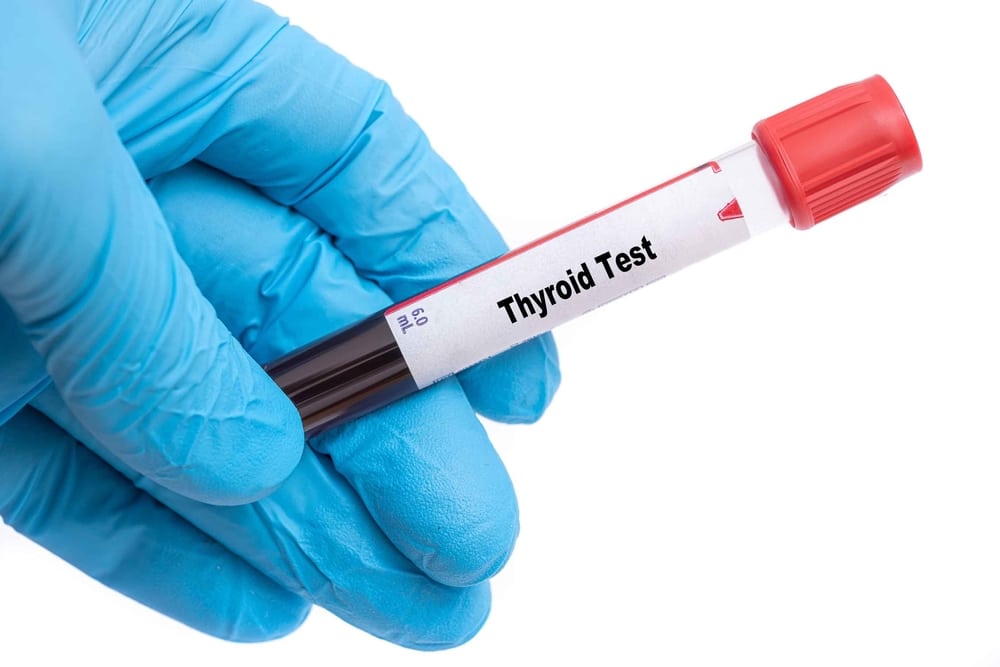
When it comes to medical tests, certain preparations are often required to ensure accurate results. If you’ve been scheduled for a thyroid test, you may be wondering whether it’s necessary to fast before the procedure. In this article, we will explore the surprising truth behind eating before a thyroid test and provide you with valuable insights. So, let’s dive in!
Understanding the Thyroid Test
Before we delve into the question of whether you can eat before a thyroid test, it’s important to understand the purpose of this diagnostic procedure. A thyroid test is performed to evaluate the functioning of the thyroid gland and detect any potential abnormalities. The thyroid gland plays a crucial role in regulating metabolism, energy levels, and other bodily functions.
Where To Get Tested?
Say Goodbye To Waiting Rooms And Long Lines. Speedy Sticks offers at-home testing.
The Importance of Accurate Results
Accurate test results are vital for diagnosing thyroid disorders, such as hypothyroidism or hyperthyroidism. These conditions can have a significant impact on your overall health and well-being. Therefore, it’s essential to follow the recommended guidelines to ensure reliable and precise test results.
Fasting Guidelines for Thyroid Tests
Traditionally, fasting was considered necessary before a thyroid test to obtain accurate readings. However, recent research suggests that fasting may not be mandatory for all types of thyroid tests. The guidelines for fasting may vary depending on the specific test being conducted and the healthcare provider’s recommendations.
Effects of Eating on Thyroid Test Results
Eating before a thyroid test can potentially affect the results by influencing the levels of certain hormones and substances in your bloodstream. For instance, consuming food shortly before the test may cause a temporary increase in thyroid-stimulating hormone (TSH) levels, leading to misleading results. However, it’s important to note that the impact of eating on test results can vary among individuals.
Factors Affecting the Need for Fasting
The decision to fast before a thyroid test depends on various factors, including the type of test being conducted, the specific requirements of the laboratory, and your healthcare provider’s instructions. Certain tests, such as the TSH test, may not necessarily require fasting, while others, like the free T4 or T3 test, may still have fasting recommendations.
Benefits of Fasting for Thyroid Tests
Although fasting may not be mandatory for all thyroid tests, there are potential benefits to consider. Fasting for a specified period before the test can help eliminate any external factors that may interfere with accurate readings. It provides a baseline for comparison and ensures that the results reflect your true thyroid hormone levels.
Alternative Preparations for Thyroid Tests
If fasting is not required or recommended for your thyroid test, there are alternative preparations to consider. These may include avoiding certain medications or substances that could influence the test results. It’s crucial to consult with your healthcare provider to determine the specific instructions for your test.
Common Misconceptions Debunked
There are several misconceptions surrounding fasting and thyroid tests. One common myth is that fasting for an extended period, such as overnight, is necessary for accurate results. However, recent studies indicate that shorter fasting durations can still provide reliable readings. It’s essential to stay informed and follow the most up-to-date guidelines provided by medical professionals.
Tips for a Successful Thyroid Test
To ensure a successful thyroid test, here are some tips to keep in mind:
- Follow the instructions provided by your healthcare provider.
- If fasting is required, adhere to the recommended duration.
- Stay well-hydrated before the test.
- Avoid strenuous exercise or activities that may affect your thyroid levels prior to the test.
- Inform your healthcare provider about any medications or supplements you are currently taking.
What to Expect During the Test
During a thyroid test, a healthcare professional will typically draw a small blood sample from your arm. The process is relatively quick and straightforward. You may experience a slight prick or discomfort, but it is generally well-tolerated. After the test, you can resume your normal activities unless otherwise instructed by your healthcare provider.
Interpreting the Results
After the test, your healthcare provider will analyze the collected blood sample to assess your thyroid hormone levels. The results will help determine if there are any abnormalities or indications of thyroid disorders. It’s important to remember that interpreting the results should be done by a qualified healthcare professional who can provide proper guidance and advice.
Discussing Your Test Results with a Healthcare Provider

Once you receive the test results, it’s crucial to schedule a follow-up appointment with your healthcare provider to discuss the findings. They will provide you with a comprehensive explanation of the results, address any concerns you may have, and recommend appropriate treatment options if necessary.
Conclusion
In conclusion, the need for fasting before a thyroid test can vary depending on the specific test being conducted and the instructions of your healthcare provider. While fasting was traditionally recommended, recent research suggests that it may not be necessary for all types of thyroid tests. It’s crucial to follow the guidelines provided by your healthcare provider to ensure accurate and reliable results. Remember, discussing any concerns or questions with a qualified professional is essential for proper understanding and management of your thyroid health.
Say Goodbye To Waiting Rooms And Long Lines. Speedy Sticks offers at-home testing.







Recent Comments